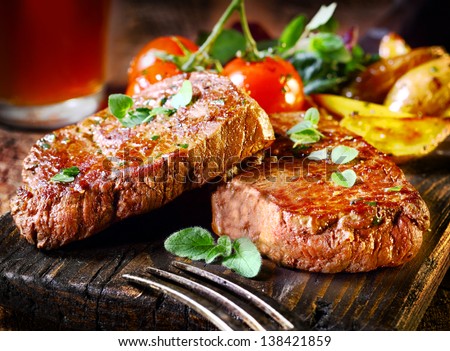Perhaps, you already know broccoli is good for you, but recent information from the scientific community has revealed that broccoli, the tasty, tiny tree doppelganger, is even better for you than previously thought.
Scientists already knew broccoli and other Brassica vegetables could protect against cancer.
Sulforaphane, a naturally occurring organic sulfur compound within the isothiocyanate group, has caused cell cycle arrest and apoptosis, or programmed cell death, in colon cancer cells and exterminated breast cancer stem cells. Some other study explained:
"Epidemiological studies suggest that intake of cruciferous vegetables including broccoli reduces the risks for the induction of certain forms of cancer.

This protective effect has been linked to the presence of glucoraphanin, a glucosinolate precursor of sulforaphane, an isothiocyanate that influences the process of carcinogenesis."
The same study referenced some of the ways this takes place, including the inhibition of tumor development, cell growth, proliferation and apoptosis.
In other studies, broccoli has played a part in lowering risk factors in lung cancer, one of the most common cancer types in the U.S., as well as prostate cancer, the most common type of cancer in U.S. men (other than skin cancer), due to its isothiocyanate content. It's important to know that you have to get these compounds through your diet.
In the newest revelation, scientists at the University of Illinois identified the "candidate" genes that influence phenolic compounds such as flavonoids in broccoli and found that eating them is strongly associated with a lower risk of several other diseases, including asthma, type 2 diabetes and coronary heart disease, as well as several cancer types.
Researchers crossed two broccoli strains, analyzed their offshoots and used "quantitative trait locus analysis"5 to find the genes responsible for both the highest phenolic production and the ability to annihilate free radicals.
Significantly, the scientists reported that the more people eat these compounds, the less they tend to contract these and other diseases. According to Jack Juvik, Ph.D., a geneticist at the University of Illinois, in Phys.org:
"Phenolic compounds have good antioxidant activity, and there is increasing evidence that this antioxidant activity affects biochemical pathways affiliated with inflammation in mammals.
We need inflammation because it's a response to disease or damage, but it's also associated with initiation of a number of degenerative diseases. People whose diets consist of a certain level of these compounds will have a lesser risk of contracting these diseases."
What scientists hope to do with this new information is interesting: they plan to breed broccoli and other vegetables, such as cabbage, cauliflower and kale, and essentially infuse them with "mega-doses" of phenolic compounds. However, as Juvic noted:
"It's going to take awhile. This work is a step in that direction, but is not the final answer. We plan to take the candidate genes we identified here and use them in a breeding program to improve the health benefits of these vegetables.
Meanwhile, we'll have to make sure yield, appearance and taste are maintained as well."
Facts Source: mercola.com
Scientists already knew broccoli and other Brassica vegetables could protect against cancer.
Sulforaphane, a naturally occurring organic sulfur compound within the isothiocyanate group, has caused cell cycle arrest and apoptosis, or programmed cell death, in colon cancer cells and exterminated breast cancer stem cells. Some other study explained:
"Epidemiological studies suggest that intake of cruciferous vegetables including broccoli reduces the risks for the induction of certain forms of cancer.

This protective effect has been linked to the presence of glucoraphanin, a glucosinolate precursor of sulforaphane, an isothiocyanate that influences the process of carcinogenesis."
The same study referenced some of the ways this takes place, including the inhibition of tumor development, cell growth, proliferation and apoptosis.
In other studies, broccoli has played a part in lowering risk factors in lung cancer, one of the most common cancer types in the U.S., as well as prostate cancer, the most common type of cancer in U.S. men (other than skin cancer), due to its isothiocyanate content. It's important to know that you have to get these compounds through your diet.
In the newest revelation, scientists at the University of Illinois identified the "candidate" genes that influence phenolic compounds such as flavonoids in broccoli and found that eating them is strongly associated with a lower risk of several other diseases, including asthma, type 2 diabetes and coronary heart disease, as well as several cancer types.
Researchers crossed two broccoli strains, analyzed their offshoots and used "quantitative trait locus analysis"5 to find the genes responsible for both the highest phenolic production and the ability to annihilate free radicals.
Significantly, the scientists reported that the more people eat these compounds, the less they tend to contract these and other diseases. According to Jack Juvik, Ph.D., a geneticist at the University of Illinois, in Phys.org:
"Phenolic compounds have good antioxidant activity, and there is increasing evidence that this antioxidant activity affects biochemical pathways affiliated with inflammation in mammals.
We need inflammation because it's a response to disease or damage, but it's also associated with initiation of a number of degenerative diseases. People whose diets consist of a certain level of these compounds will have a lesser risk of contracting these diseases."
What scientists hope to do with this new information is interesting: they plan to breed broccoli and other vegetables, such as cabbage, cauliflower and kale, and essentially infuse them with "mega-doses" of phenolic compounds. However, as Juvic noted:
"It's going to take awhile. This work is a step in that direction, but is not the final answer. We plan to take the candidate genes we identified here and use them in a breeding program to improve the health benefits of these vegetables.
Meanwhile, we'll have to make sure yield, appearance and taste are maintained as well."
Facts Source: mercola.com



